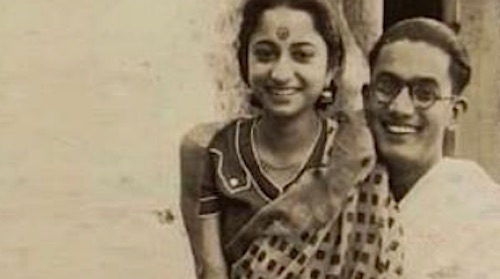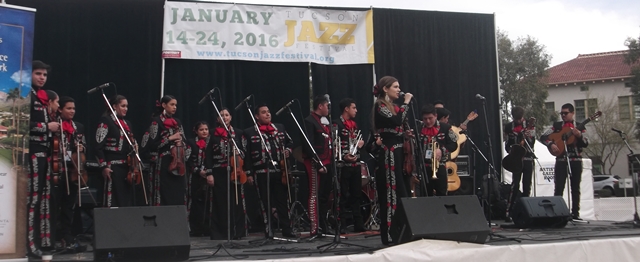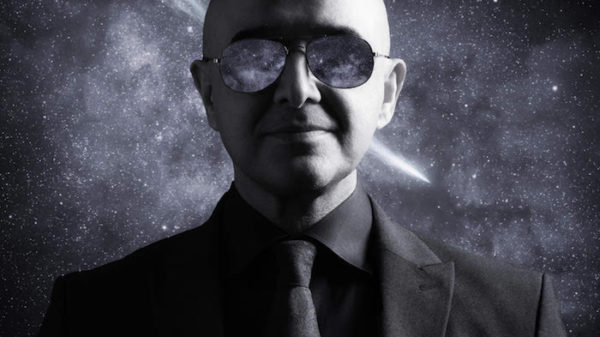The year was 1941. The British were firmly in charge. The rumbles of war were spreading through Europe. Quit India was still a year away. In the sleepy mining town of Hazaribagh, a young woman was also plotting rebellion of a different kind.
Debika Ghosh was planning to flee the family mansion to be with the man she loved. In those days there were no Love Commandos to help lovebirds fleeing angry parents and khap panchayats[village society]. Her younger brother would smuggle notes hidden in his socks to her boyfriend, Ranjit. Her uncle, the family head, a zamindar and a barrister, had threatened to shoot any over eager Romeo who came too close to her.
It was not entirely an empty threat. Ghosh-sahib was a hunter. He liked shooting big game. In Hazaribagh his word was law. People said “If P.N. Ghosh says so, then tigers and cows will drink water from the same ghat [steps leading down to a river].”
What Ghosh-sahib did not know was that his niece was just as much a Ghosh as he was – stubborn, determined and fearless. In fact, she’d already secretly married the man she wanted. In the middle of a hide-and-seek game with her cousins she’d slipped away with Ranjit who was waiting around the corner with a car, gone to the registrar’s house and done the deed. An hour or so later she’d just as quietly come back home where everyone was searching high and low for her. “Oh how silly you all are,” she had said, jumping out from behind a bush. “You couldn’t find me? I was here all along.”
But she didn’t dare tell the family. And now things were coming to a head. A famous ICS officer wanted her as his daughter-in-law. And the man she wanted had all the usual strikes against him. He just did research. He did not have very much money. He came from the same gotra [clan] as she did.
So that night in 1941 she packed a bundle with everything she thought she would need – a couple of petticoats, a few blouses, a comb and two albums, one of family photographs, the other of Hollywood filmstars. She treasured that album. In those days you got Hollywood postcards with your Nestle chocolates. She’d saved everyone she could find – Norma Shearer, Claudette Colbert, Fredric March.
She oiled the locks so the doors would open without squeaking. She bought a cheap sari for 12annas [old currency worth 1/16 rupee], the kind housemaids wore so if anyone spotted her they would think she was just a servant going to work in the breaking dawn. At the crack of dawn her younger sister woke her up. “I think I hear the car horn,” she said. “You should go now.” Debika left a false plait of hair on her pillow so it looked like she was still sleeping and then tiptoed out of the house barefeet.
Her uncle’s fierce Alsatians, Nevo and Tom came bounding up to her. She patted their heads so they would not bark. It had rained the night before and there were huge puddles in the courtyard. Her feet sank into the mud. Her heart thudded as a snake slithered past. Luckily, the big gate with the eucalyptus trees on either side was unlocked. The villagers had come the day before to pay their dues to the zamindar.
Ranjit was waiting at the head of the street with a taxi. But of course, the taxi driver recognised her. “Isn’t that chhota babu’s ladki?” he asked suspiciously. When they boarded the train for Asansol where a friend had a house, an anxious Debika said “By the time we get there, word will have gotten back home. What if they are at the station with guns?”
And that’s why, before the train rolled into Asansol, just as it slowed down, the runaways jumped.
Someone pulled the chain. Guards came running. The young couple pretended that they thought the train was not going to stop and marched off into their new lives.
“That night we sat up all night in the garden and just talked,” Debika says. “The next day we had the marriage ceremony. I decorated his face with chandan [sandalwood powder] because there was no one else to do it.”
They were married for over 60 years.
I know this because I have known Debika Ghosh all my life. She is my mother’s aunt. But I had only known her in the ways that one knows grandmothers. I knew that Ranga-dida as I called her had a recipe for meatballs in yogurt sauce that was a family favourite. I knew she went to Pondicherry regularly to spend time at the Aurobindo Ashram. When relatives were in hospital she visited dutifully. But it never occurred to me to ever wonder about her love life. Or to imagine that she might have even have had one.
While not exactly a family secret, my great aunt’s escapade was not a story that was constantly drummed into our heads as children. Unlike the tales of my grandfather’s gold medal or another great-aunt’s freedom fighter legacy. In fact, she became the scandal of Calcutta. For years every romance in good Calcutta homes was blamed on her whether they knew her or not. That’s who they must have learned all that nonsense from, that Debika, angry parents would complain.
Now we live in a time when we have designated an Archies card holiday for lovers. Valentine’s Day in my neighbourhood is being celebrated through candlelight dinners and a prize for the best couple. There’s a flat 25% off sale on gold jewellery. The newspaper has a recipe for making Love Strawberries and Crepe Valentino. As usual some group will protest Valentine’s Day as a western perversion. In Bhopal the Sanskriti Bachao Manch worshipped batons and hockey sticks at a temple and warned of violent protests if locals tried to celebrate Valentine’s Day. In Pakistan the student wing of the Jamaat-e-Islami wants Valentine’s day to be a “day of modesty” and forbade the holding of any Valentine’s Day function.
I wonder what they would make of my great aunt Debika. They would probably just see her now as a 90 year old woman, impeccably turned out, but still an old woman, house-bound, shuffling from room to room with walker. They might believe that this was a woman who wore khaddar [cotton cloth] during the freedom struggle and was a lifelong devotee of Shri Aurobindo. But they certainly would never guess that one day over 70 years ago, before any of them were born, she had jumped off a moving train for love.
She could tell them that you need Valentine’s Day to sell chocolates and over-priced candlelight dinners and get free publicity for protests. But to make a leap for real love, you don’t need much more than a twelve anna sari and a moving train.
Sandip Roy is editor at Firstpost where this essay originally appeared. He is the author of “Don’t Let Him Know.“












